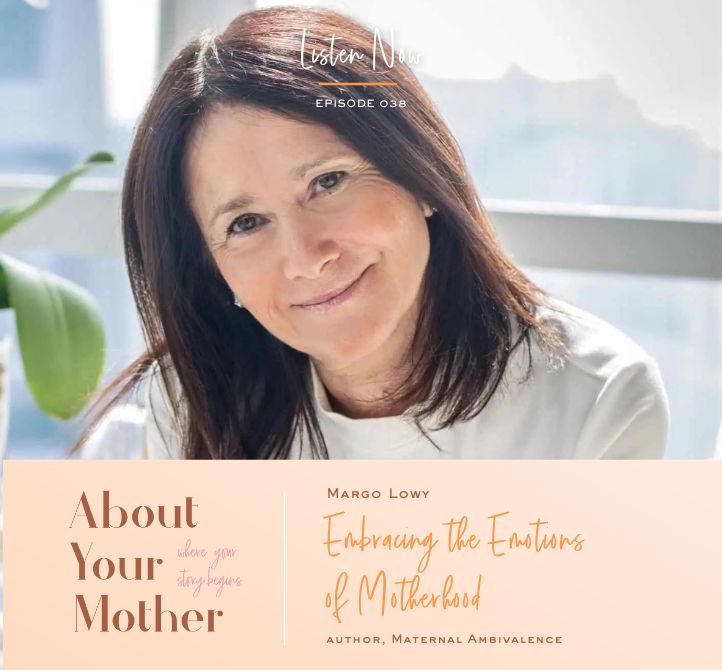Mothering is hard, but we don’t want to admit that there is pain in everyday mothering. Why is that? Confessing to the dark moments of mothering keeps us from living up to the high bar of perfection that we–and society–has asked of mothers.
In this episode, I interview Dr. Margo Lowy, a psychotherapist and the author of Maternal Ambivalence, about why we need to embrace the light and dark moments of mothering. She shares how the complicated moments can fuel our love, help us practice self-compassion, and model forgiveness to our children.
What is Maternal Ambivalence?
Maternal ambivalence is the contradictory feelings that all mothers experience. These emotions are often perceived as indifference, but that’s not an accurate definition. It’s a connective force–it’s a mother’s capacity to not disregard “dark moments.”
Everyone has light moments and dark moments. Light moments are fluid, and they include moments of joy and happiness. Dark moments are the things we don’t want to talk about. They feel messy and disturbing.
The truth is that it’s crucial for mothers to acknowledge when they don’t feel good in their role because that process of acknowledgement renews their love for their child. Love is complicated. It goes through ups, downs, and plateaus as it grows.
When things don’t go well, moms will ask themselves, “Did I really just say (or think) that?” But then they love their children more. Maternal ambivalence reminds us of our love for our children–the bittersweet moments that melt us.
Maternal Ambivalence Lets Go of Perfection
We’re in an era of mothering that is all about living up to an ideal. We don’t want to acknowledge failures because they make us look imperfect. Mothering isn’t perfect. It’s a human experience filled with mistakes.
Mothers walk around with critical inner voices that both steal their confidence and allow them to ignore the pain of everyday mothering. It’s important for mothers to be compassionate with themselves. It’s better for them and it models self-forgiveness to their children.
Why We Need to Mother Ourselves
Part of maternal ambivalence is mothering yourself. As Margo says, “If we don’t mother ourselves, we are not full. We’re not able to nourish our children.”
Many of us didn’t get the nourishment we should’ve gotten from our own mothers. When you mother yourself, you can repair some of the damage that was done.
What does mothering yourself look like? It’s slowing down during the business of motherhood to put your oxygen mask on first.
Dark Feelings Fuel Your Love
In Torn in Two, Rozsika Parker wrote that mothers experience “loving feelings” and “hating feelings.” Using the word hate in association with motherhood was highly upsetting for many people.
Margo uses words like distressing or disturbing instead of hating to make the idea of maternal ambivalence more palatable. However, the strong reaction to these words shows just how uncomfortable mothers feel with their less-than-desirable emotions.
As a result, mothers try to suppress and hide their gamut of feelings, which only makes them worse. Embracing maternal ambivalence, which states that motherhood is full of conflicting feelings, brings the myriad of parenting into the light. This process can transform you and fuel your love toward your children.
The key to embracing maternal ambivalence is to accept that there is pain in mothering and that it isn’t your fault. Then, you must release the fear of vulnerability–your own and your child’s.
Mothers Need to Hold Onto Themselves
Motherhood has evolved, but it wasn’t that long ago that mothering was a woman’s entire identity. Even though it’s less common now, it still happens. Women who pour all of their energy into mothering feel lost when their children eventually leave the nest.
Embracing maternal ambivalence helps you maintain your sense of self as a mother. It’s better for your children, too, because they won’t experience a sense of guilt when they leave you to start their own lives.
You practice self-compassion and nourish yourself, which teaches your children to do the same.



